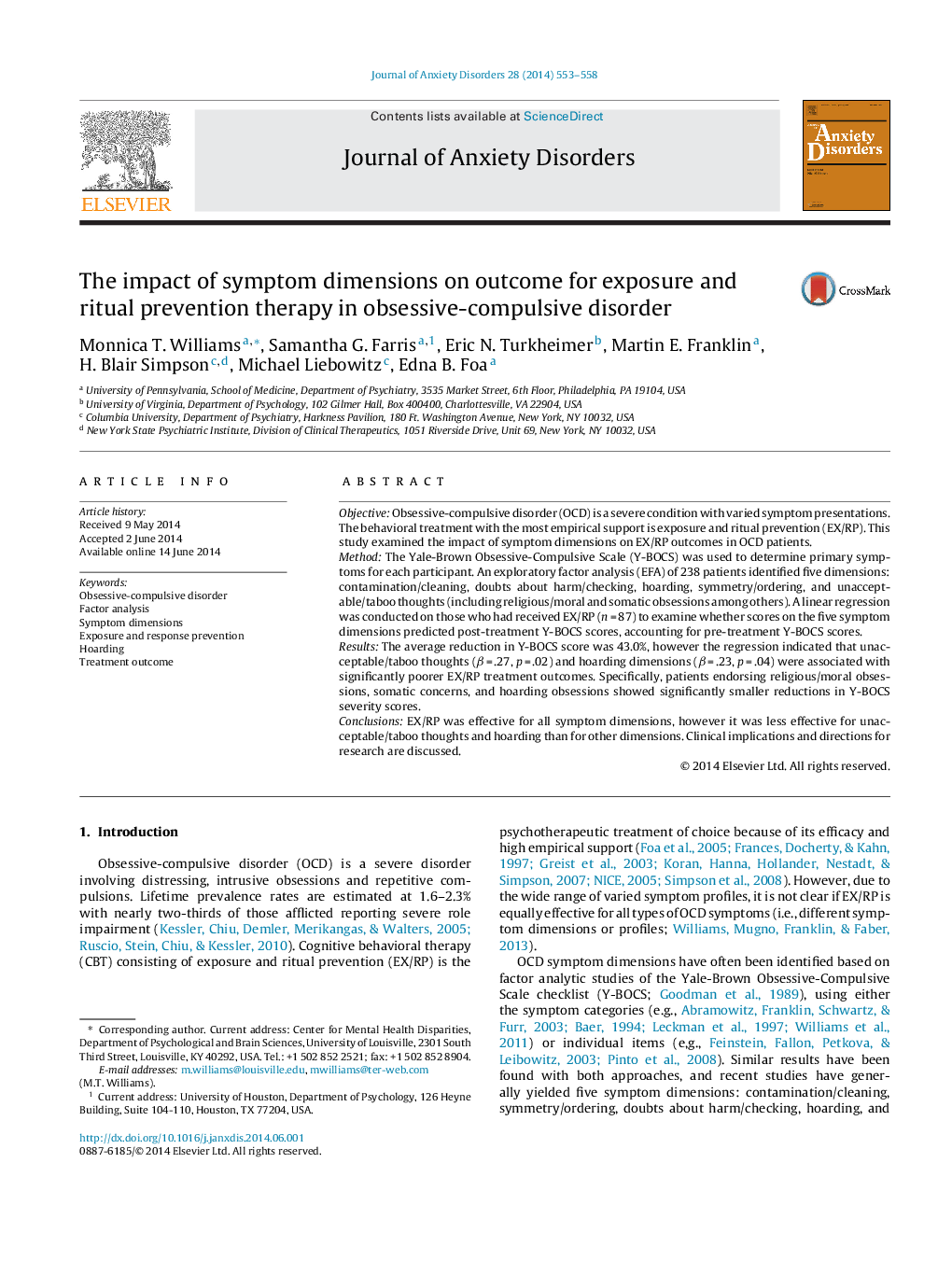| کد مقاله | کد نشریه | سال انتشار | مقاله انگلیسی | نسخه تمام متن |
|---|---|---|---|---|
| 909319 | 917271 | 2014 | 6 صفحه PDF | دانلود رایگان |
• We examine the impact of symptom dimensions on treatment outcomes in OCD.
• An exploratory factor analysis of 238 patients identified 5 symptom dimensions.
• Linear regression was conducted on those receiving exposure and ritual prevention.
• Unacceptable/taboo thoughts and hoarding exhibited poorer treatment outcomes.
• Nonetheless, EX/RP was an effective treatment for all symptom dimensions.
ObjectiveObsessive-compulsive disorder (OCD) is a severe condition with varied symptom presentations. The behavioral treatment with the most empirical support is exposure and ritual prevention (EX/RP). This study examined the impact of symptom dimensions on EX/RP outcomes in OCD patients.MethodThe Yale-Brown Obsessive-Compulsive Scale (Y-BOCS) was used to determine primary symptoms for each participant. An exploratory factor analysis (EFA) of 238 patients identified five dimensions: contamination/cleaning, doubts about harm/checking, hoarding, symmetry/ordering, and unacceptable/taboo thoughts (including religious/moral and somatic obsessions among others). A linear regression was conducted on those who had received EX/RP (n = 87) to examine whether scores on the five symptom dimensions predicted post-treatment Y-BOCS scores, accounting for pre-treatment Y-BOCS scores.ResultsThe average reduction in Y-BOCS score was 43.0%, however the regression indicated that unacceptable/taboo thoughts (β = .27, p = .02) and hoarding dimensions (β = .23, p = .04) were associated with significantly poorer EX/RP treatment outcomes. Specifically, patients endorsing religious/moral obsessions, somatic concerns, and hoarding obsessions showed significantly smaller reductions in Y-BOCS severity scores.ConclusionsEX/RP was effective for all symptom dimensions, however it was less effective for unacceptable/taboo thoughts and hoarding than for other dimensions. Clinical implications and directions for research are discussed.
Journal: Journal of Anxiety Disorders - Volume 28, Issue 6, August 2014, Pages 553–558
